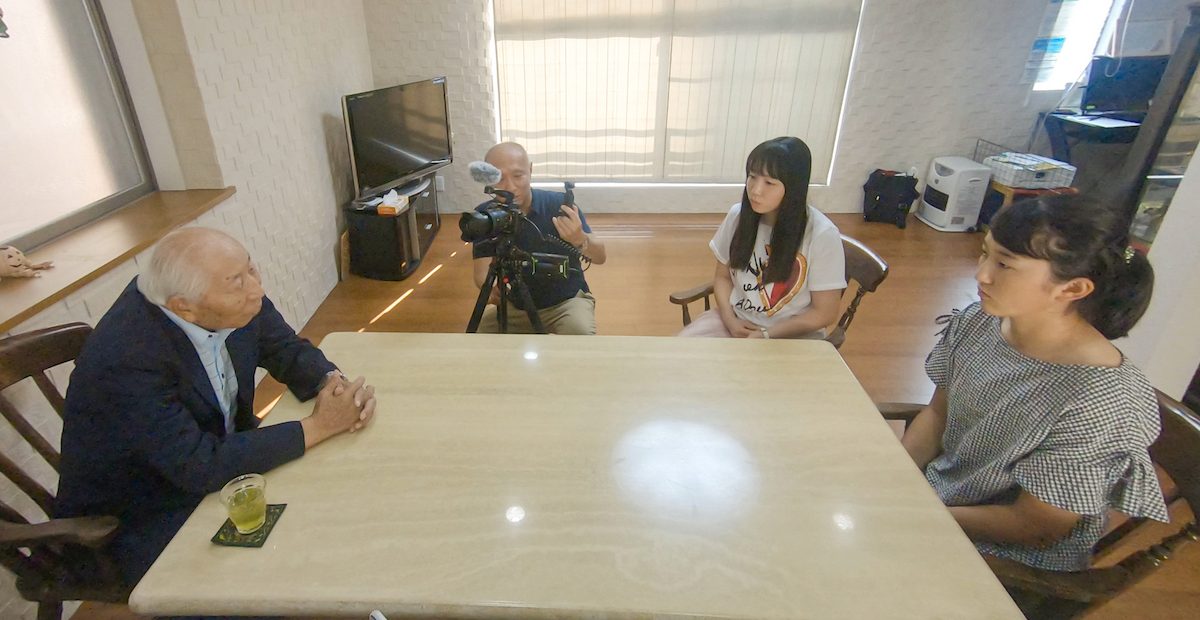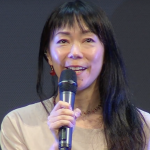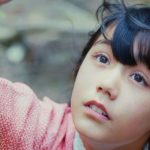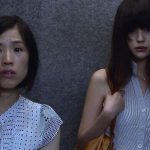Watch Kind People: Untold Stories of the Nagasaki Atomic Bomb for free on FilmDoo
With his new film Kind People: Untold Stories of the Nagasaki Atomic Bomb, director Kazumi Matsumoto puts a spotlight on the individual account of survivors of the historic events of August 9th, 1945. Through a selection of interviews covering both the immediate aftermath of the bombing and the hardships faced by the hibakusha (atomic bomb survivors) in years that followed, Matsumoto’s documentary goes beyond the cold facts of history to explore the personal moments and connections lost to time, while drawing a continuity between the traumas of the past and the world of today.
With Kind People now available to watch on FilmDoo, Matsumoto reflects on his experiences speaking to the survivors of Nagasaki.
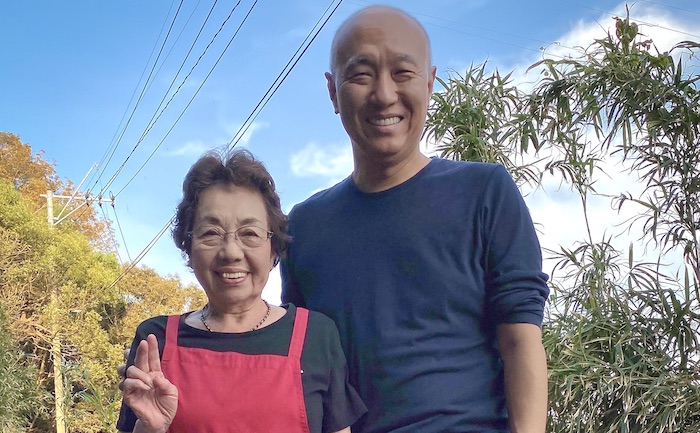
How did the idea for this project initially come about?
Initially, I was in Nagasaki for another project, but that project came to a temporary halt. So I wondered if I could use the time I had to leave behind a visual representation of something important to the people of Nagasaki, and what I came up with was the idea of leaving behind a visual representation of the A-bomb experience.
Many of the A-bomb survivors had already been active in sharing their experiences and providing their voices, but I thought it was important to preserve the voices of those who had never shared their experiences with the media, and began to search for such people. However, the media people in Nagasaki told us that they, too, had searched every corner of the city for the archives and, as expected, they were no longer there. By tracing back to ordinary people who had nothing to do with the storytelling activities, we came to meet 10 people.
When I interviewed the first person, I was told about episodes that differed from the information I knew, and I wondered if there might be many facts that had been left dormant. I thought, “There must be a lot of facts that have been lost in the shadows.” From there, I began to think that we must preserve the voices of ordinary people, citizens, who do not speak out as the silent majority.
When we interviewed them, many of them said, “If I had not had this opportunity, I might have ended my life without talking about it.” Some declined to be interviewed, saying they did not want to talk about the tragic past because they did not want to remember it, but many felt they had to leave their stories behind now that 75 years had passed at the time of the interview.
For the time being, our archival activities were conducted from the perspective of preserving the voices of the world’s only A-bombed country. In the process, we received many requests to view the archives on the 75th anniversary of the atomic bombing (August 9, 2020), so we decided to complete the archive as a single film.
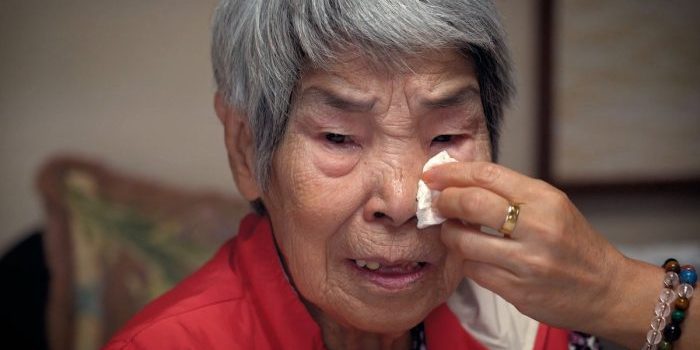
How would you describe your experience interviewing the survivors? Were they hesitant to discuss these personal, often very disturbing memories?
I myself had no contact with war in my life, and never imagined that I would be able to interact with those who were victims of nuclear weapons. In that sense, I may have only been aware of factual information, history. Then the interviews began, and I witnessed the persuasive power of the real voices of the people involved, and I strongly felt that these were voices that must be preserved. If filtered through hearsay, the tone would be completely different, so we need to feel not only the words from these women, but also their expressions and emotions. When I realised this, I realised the importance of oral history. It is important to preserve this style of film.
When I was interviewing them, I felt their bitterness and sadness, but at the same time, I felt their strength to have lived, and I felt I had to tell them that as well. In a few cases, I was turned down for interviews. Their reason was that they were afraid of flashbacks. I imagine it was such a tragedy. So maybe they have not told their own children about it. There is another story that we could not incorporate into the film. It was very sensitive, and there was a risk that it could have political implications, which could have changed the role of the film.
The film draws parallels between the discrimination faced by hibakusha at the time and the more recent prejudice faced by survivors of the Fukushima nuclear crisis due to fears of radiation. Why do you feel these attitudes have persisted after all this time, and where do you think the solution lies?
Hibakusha were wounded in battles with other countries, and after the war they had to fight discrimination and prejudice from their own people. When they showed their Hibakusha Certificate in Nagasaki or Hiroshima, they did not feel uncomfortable, but when they went out to other prefectures and presented it at hospitals, they were sometimes surprised and felt alienated. And this feeling of discrimination exists not only in the Fukushima nuclear accident today, but also in the COVID pandemic.
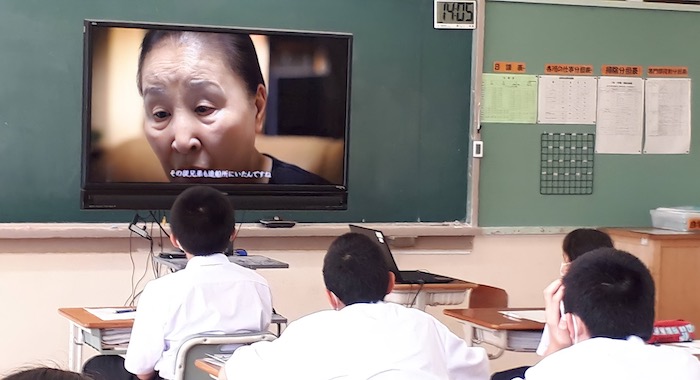
I think it is not knowing, and the fear of not knowing, that makes people that way. In addition, I believe that the spread of exaggerated information, intentional manipulation of information, and irresponsible personal opinions on the internet add to the fear of not knowing, and foster feelings of discrimination and prejudice. If there is calm and correct information, we may be able to stop. In the past, misperceptions were the result of a lack of information, but in the modern age, people cannot keep up with their own processing due to information overload, and this may be the result of a tendency to believe only the information that is convenient for them.
For example, at the time of the atomic bombing, it was said that “not even a tree would grow for 70 years,” but in reality, trees have grown and people are living normally. Many people are still living there. Many people from overseas also visit the area for sightseeing. This fact is also very important, and we must correctly evaluate what is dangerous and what is safe. To do this, I think it is very important to get the facts right. If society perceives a risk, discrimination and prejudice will accelerate. If we can judge information correctly and calmly, we may be able to accept the opposite. And if it is a one-sided view that cannot be evaluated correctly, it is nothing but an insult to the people of our region who are living here today.
Viewers may be surprised at just how forgiving the hibakusha are of America’s actions. In your opinion, how does someone remain optimistic about human nature after witnessing such terrible events?
It may also be because of the national character of the Japanese people. Others say it is because it is a Christian town, as depicted in Scorsese’s Silence. But essentially, I think it is also due to the positive attitude of the U.S. toward the defeated nation, which was mentioned in the interviews. This approach was developed theoretically to avoid antagonising the defeated nation. On the other hand, if the U.S. had responded arrogantly as a victorious nation, the result might have been different. I believe that the people of Nagasaki still have the impression that a friendly response was developed at the citizen level.
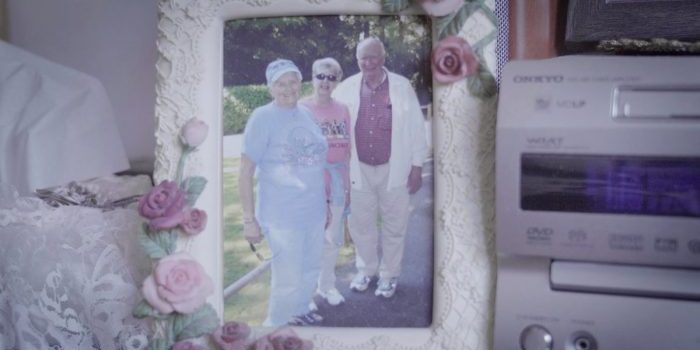
I also think the national character of the American people is a factor. As one old lady said, “They are very friendly.” If you treat people in a positive way, you can alleviate their grief and suffering. So the way we treat people is very important. Also, I think that there was something about these characters that made us feel the touch of the heart, rather than a caricature that was created.
However, it is also true that there were tragic consequences, as depicted in the manga Barefoot Gen. It is important not to think that all the situations were the same. It is more dangerous to speak of those days in a single tone, which erases the facts of “each” and creates an atmosphere in which it is impossible to speak.
There are good people and there are bad people. Some bad people make up the whole atmosphere, but that is not the whole public opinion, just a part of it. I would like to think that the majority are ordinary citizens of good will.
That is why I think it is important to accept feelings that were not hatred as fact. To pass them on, as the feelings of ordinary people, may offer a hint for how humans can end their conflict.
What lessons do you think we can learn from the events of Nagasaki?
The film does not introduce the names of the hibakusha in the film. They are introduced in the end credits, but even then it is difficult to connect the credit names with the individuals – unless you know the person…
So why did we do it that way? Because it makes no sense to identify individuals. The reason is not to identify who in Nagasaki was exposed to the bomb, but to understand that there were many people who experienced such a tragedy. Personal identifying information tends to be viewed as a problem specific to that person. However, the damage caused by the war involved many sacrifices, and we must understand the “many”. Also, the unknown nature of the atomic bombing could lead to discrimination and prejudice against a person due to personal identification. However, it has been 77 years, so that possibility may be small.
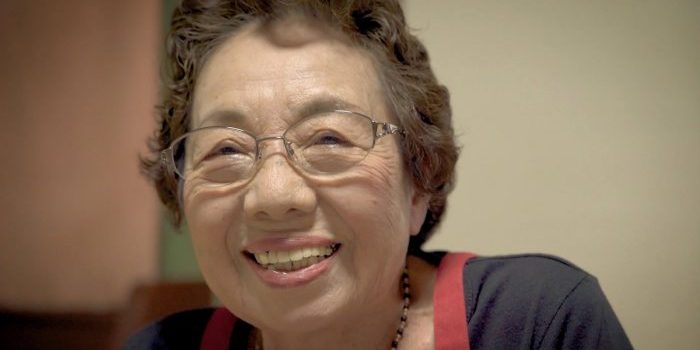
The same can also be said of the situation in Ukraine. It is important to understand that it is not that individuals in Ukraine are having a hard time, but that “many” ordinary citizens are being sacrificed. It is always a war in which many citizens are sacrificed, and since ordinary citizens do not have power, they cannot help themselves and have no choice but to accept the absurdity of the situation. That is why we must listen to the voices of the hibakusha, and our leaders especially should be aware of the sacrifices that are being made.
I also believe that it is very important for people to connect with each other without being distinguished by country or region. Sadly, humans have always been at war with each other. It happens at the level of nations and regions. However, if we can go beyond that, and if the connection between individuals grows, we will have the power to speak out against it. Ordinary people don’t kill their friends, do they?
Also, if we do not have the courage to break the chain of grief, it will repeat itself in the form of revenge and will never end. This is not an easy thing to do. When I think about the damage done to my relatives, friends, and myself, I cannot talk about it lightly to others, and I also wonder what I would do if I were in their shoes. That is why I believe that we should feel and learn from the voices of the hibakusha.
We want the citizens of Russia to see this film, and I believe that if the people of Europe, who have been wounded and are about to lose sight of tomorrow, can also feel the power that the hibakusha have lived, they will be one step closer to peace. I would like them to feel from the hibakusha what they should not use and what they should not do, and I would like them to use that as their strength.
Additional note: An oral history documentary film For You: Stories of the Hiroshima A-Bomb Survivors and an oral history documentary film about Nagasaki A-Bomb survivors, The Power of Life: From Nagasaki, will be released in theatres in Japan in this August. In Hiroshima, the film tells the story of interviews with people who worked for the hibakusha in the midst of the tragedy and in the society that followed. In Nagasaki, the film includes interviews with witnesses newly discovered after the release of Kind People and interviews with an old man who played music with the American soldiers, facing the organ while reminiscing about the old days.

